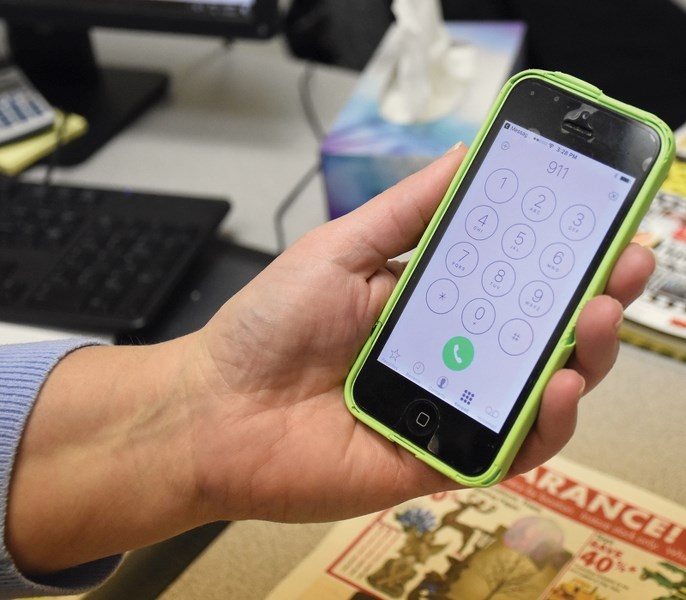Emergency responders are only a text message away for people with hearing and speech impairments.
The Text 9-1-1 service allows someone who is deaf, hard of hearing, or has a speech impairment to use their cellphone to communicate with responders in an emergency.
“You’ll use your phone to dial 9-1-1 and initiate the call, but then you can continue the conversation with a text instead of voice communication,” explained Town of Westlock fire chief and director of emergency management Stuart Koflick.
The service has been available in the Town of Westlock and the Village of Clyde since the end of November.
Due to the prevalence of cellphones, Karen Clark, manager of the Parkland County Emergency Communication Centre, said the program could eventually replace the Teletypewriter (TTY) service.
“Basically what it is is it replaces old technology, like TTY,” she said. “I would say about 82 per cent of our 9-1-1 incoming calls are from cellphones — landlines are becoming a thing of the past — so they had to come up with something for this community to be able to call 9-1-1 in case of an emergency.”
In 2013, the Canadian Radio-television and Telecommunications Commission (CRTC) put in a mandate that Canada needed to adhere to a new version of 9-1-1 for the deaf, deafened, hard of hearing or speech impaired community, so the Text 9-1-1 program was created.
In the last few years, Telus and the provincial government have been working to bring the service to Alberta. In October 2015, Parkland County became a dispatch centre offering it.
The dispatch centre, also known as a Public Safety Answering Point (PSAP) is based in Parkland County, is one of only six regions in the province to implement the service.
Any calls that are made to 9-1-1 within the town or village, whether it is for fire, ambulance or police, are directed to the Parkland County dispatch centre.
“It’s an added service that our dispatch centre has come up with,” Koflick said. “The good part about it is it is available to our residents.”
The service is not available for residents in Westlock County because the county uses a different PSAP, so emergency calls made in the county go to Ki-Tech.
Town or village residents must first register their phone with their cellphone service provider before they can use the service.
“They didn’t want to have it be a big process, so they have made it quite easy for them to sign up on, and they’re really just trusting that people don’t take advantage,” Clark said.
“If we found, as a province or as a dispatch centre, that we were getting a bunch of abuse, then they would put harder restrictions on the system.”
So far, Parkland County dispatch hasn’t seen many calls using the service.
“That’s why were trying to push this, making sure everyone in the area is aware,” she added.
More information about registering for the service can be found on textwith911.ca



